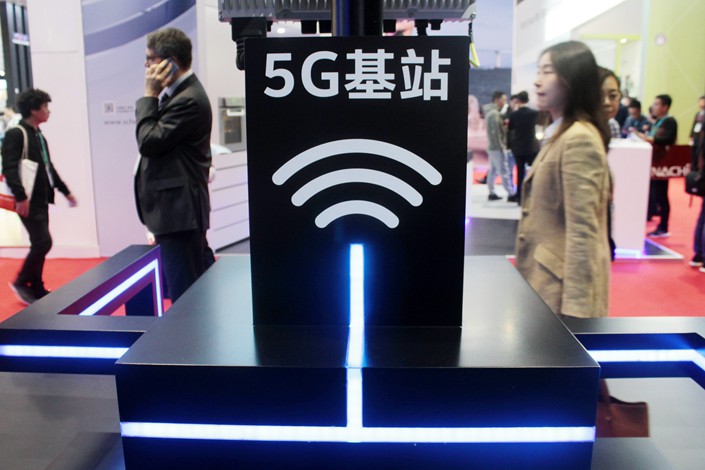Beijing: 5G network is already a reality and China wants to spearhead its growth, experts at a mobile communications fair in Asia said Wednesday.
Telecommunications companies at the Mobile World Congress in Shanghai – an offshoot of the world’s biggest fair which takes place every year in Barcelona (Spain)- have put all their efforts into showcasing 5G advances, a technology that, according to experts, will ring in a new era in areas ranging from medicine to transportation, the Efe news reported.
5G goes far beyond mobile phones and as such telecoms specialists are in a race to diversify and position themselves at the helm of this technology that will allow the sharing of information and data at a speed up to ten times higher than that of the currently used 4G network.
This ensures that there is hardly any network latency, the time it takes for a bit of data to travel across a network to an endpoint or other networks.
The groundbreaking speed of 5G data sharing will have an impact on myriad activities and sectors.
Driverless trucks that circulate in dangerous areas such as mines could be operated remotely; surgical operations could be done using robots that operate with millimetric precision thanks to the absence of the aforementioned network latency, and autonomous vehicles will be capable of minimising braking distances. These were just some of the possible applications that were presented at the fair.
“Today, everything is ahead of us. A year ago we dreamed about what could happen but now I firmly believe that 5G is already here, it is coming,” Ken Hu, Global Vice President of Huawei Technologies said during a talk at the MWC fair.
In the last year “many countries have already started to develop 5G networks” and there are “increasingly more terminals and electronic devices developed for this new technology”.
Hu presented Huawei as a pioneer in the development of 5G and noted that the multinational has managed to sign 50 commercial contracts for 5G to date (28 of them in Europe, 11 in the Middle East, six in Asia, four in America and one in Africa).
The growth the Chinese tech giant has enjoyed proves that the US’ veto, in place since May, has not hindered its development, Hu added.
“I can clearly say to everyone that with regards to 5G we will not be affected at all,” he continued.
“We will continue to be leaders in 5G because, among other things, we will maintain and increase investment,” Hu said.
Huawei began to research the field a decade ago and to date has invested over $4 billion in the technology.
The battle to dominate 5G has been one of the elements that has underpinned the US-China trade war.
June 6, the Chinese government decided to hail a “new era” in the telecoms industry and granted the first licences for the commercial use of 5G networks to China Mobile, China Telecom, China Unicom and China Broadcasting Network.
Despite this, experts cited by the Asian giant’s specialist press agree that the companies will probably take longer to offer full 5G services to their customers due to the “high costs” it incurs.
Something experts agree on though is that sooner or later when 5G is widely available, it will trigger a revolution.
“I believe that all industries will benefit from a change in the use and approach of all these technologies. 5G will be an important foundation for China’s digital economy,” Hu said.
Although 5G dominated the congress, some brands also presented some innovations, such as the Chinese telecoms company OPPO, which exhibited its first under-screen selfie camera.
Minor news for a fair that still lives in the shadow of its parent, the Mobile World Congress that was held in Feb. in Barcelona.
IANS
